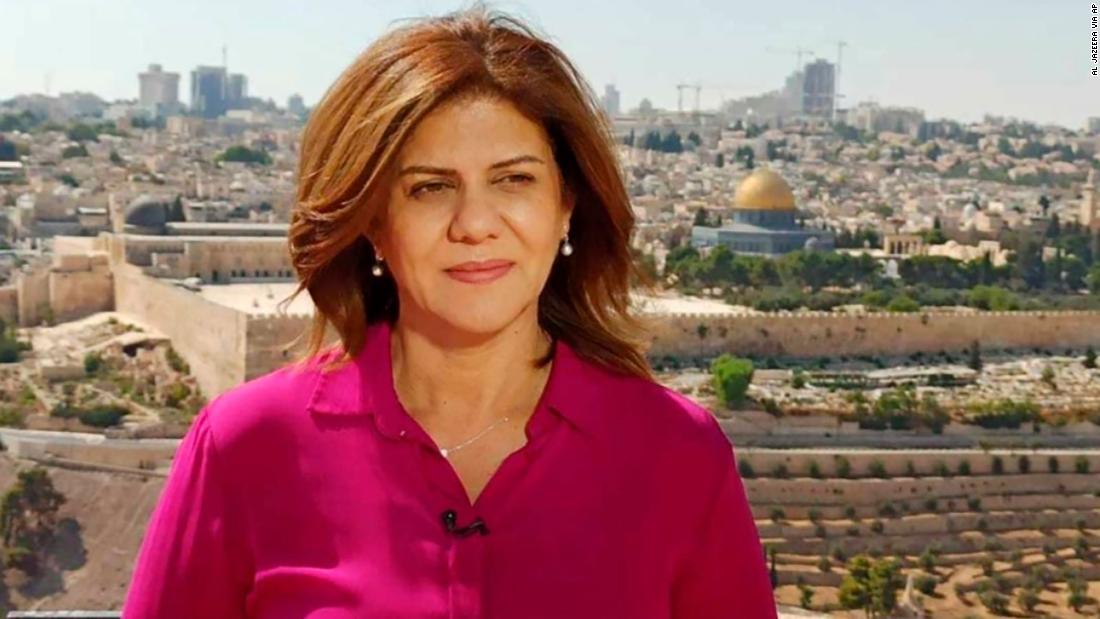Opinion: My friend Shireen Abu Akleh told the stories no one else wanted to tell
So much so, that when Israeli forces slapped curfews on us in 2002, they would go around in their jeeps and mimic her through a bullhorn: “Stay inside. This is Shireen Abu Akleh, Al Jazeera, Ramallah.”
She was cool, calm and collected as a journalist in an unforgiving field. So, you can imagine my anticipation when she was seconded to Al Jazeera’s DC bureau from Ramallah in 2010 while I was working there, producing a live, current affairs talk show.
But Shireen left her commanding presence aside as soon as the cameras were turned off, and to my surprise, there was a fun-loving girl with an infectious laugh who wanted to go shopping and dance the night away.
She’d always been this way, of course, but it was the first time I met her personally, and we became friends instantly. She worked on features from Washington DC, highlighting the fight of Black Americans for justice and equality, and went as far west as New Mexico, where she greeted Middle Eastern viewers from a Navajo reservation.
When she wasn’t working, Shireen would tell me to take her out shopping — Macy’s and Nordstrom were some of her favorite spots. She was funny, the life of every party — despite all the hardships she’d seen and encountered personally and professionally. Shireen lost her parents at a young age, yet she was still a free spirit who loved to joke.
Even in DC, people would stop her in the street asking for a selfie, to which she would happily oblige. She was down to earth, and oozed modesty and humility. Of course, it would be impossible for her to not know what she meant to so many people, but she never let it get to her or go to her head.
Her unpretentious air opened doors across the West Bank and Gaza to her. In the Palestinian territories, every family knew her name and would engage with her because they knew she would do their story justice.
She reciprocated by visiting and covering every town, city and refugee camp. No story was too small for her, despite her seniority, having spent nearly three decades in the field.
Shireen broke every stereotype possible — probably without even being aware of it. She was Palestinian, a woman, unmarried, a Christian from East Jerusalem, covering wars and horrors.
She was also a dedicated mentor to many aspiring female journalists. Shireen set countless young women on their paths in journalism, girls who grew up emulating her from when they were young, holding a hairbrush meant to be a microphone and repeating her famous closing lines: “Shireen Abu Akleh, Al Jazeera, Ramallah, Palestine.”
She was a media darling, but not a diva. She never grew too big for a story or made it about herself. She knew Jenin like the back of her hand, and so when an Israeli raid took place on Wednesday, she left her home that morning, thinking she’d be back the next.
Shireen was a veteran of conflict journalism, always careful, never putting herself, or her team, in harm’s way. She always wore her helmet and blue flak jacket emblazoned with the word “PRESS.”
Many people didn’t know this about her, but Shireen was also an American citizen. However, even when she was in the US, she said she wanted to go home. Her heart was elsewhere. It was in the alleyways of Jenin, in people’s homes in Nablus, at the Church of the Nativity in Bethlehem.
Since her death, many people have been calling her a symbol of a generation of Palestinian women who came of age in 1997, when she first joined Al Jazeera. Others call her a trailblazer. The many posters peppering the West Bank call her a martyr.
But she was a journalist — she was one of us. And she was Palestinian, through and through. That was the driving force behind her work, her passion, her will and drive to tell the stories no one else wanted to tell.
![]()


